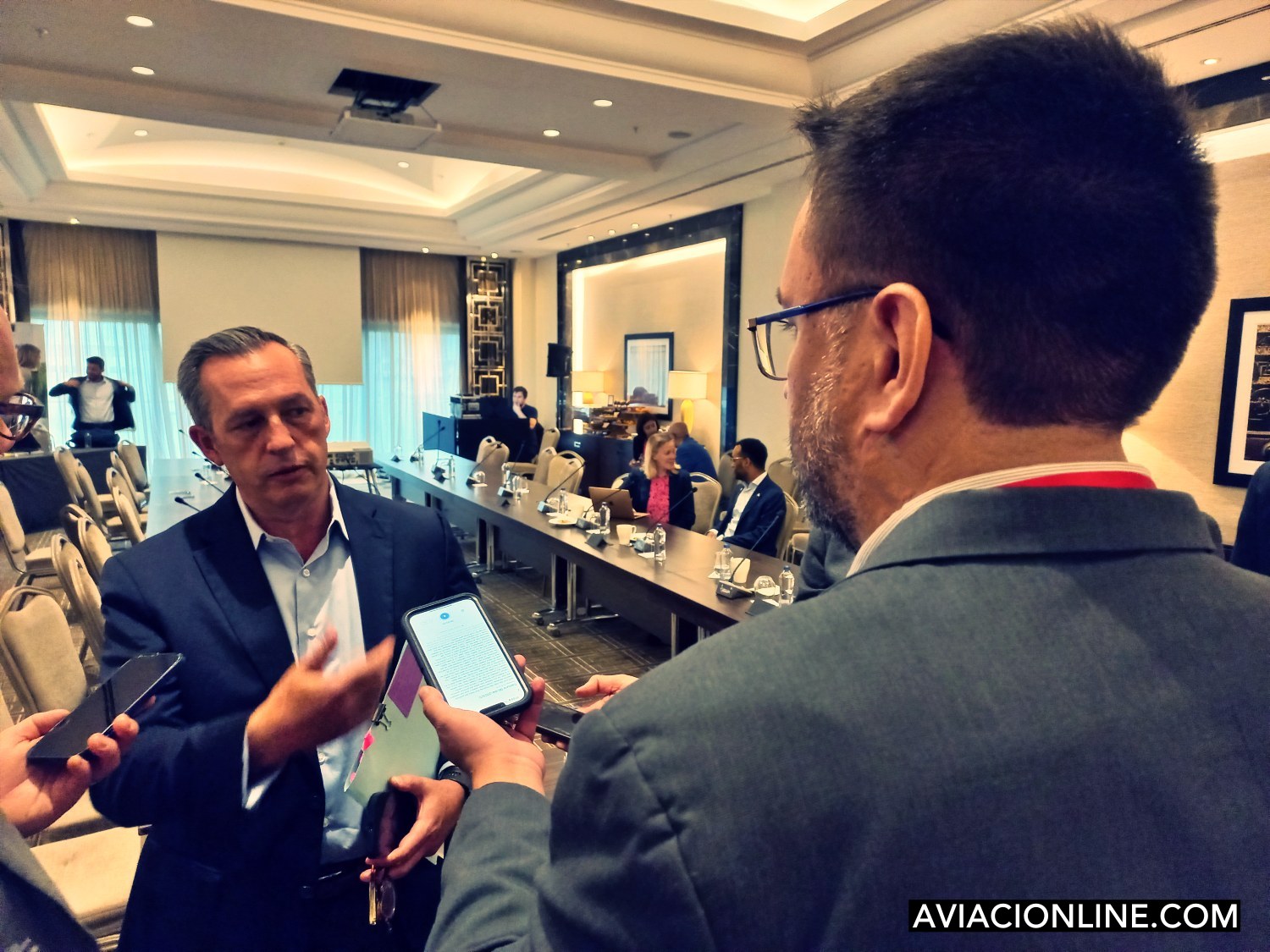ISTANBUL (Special Envoy) – Within the context of the Annual IATA General Assembly, Andrés Conesa, CEO of Aeroméxico, expressed optimism about the possibility of Mexico regaining the FAA Category 1 status, which it lost in 2020.
The executive spoke with Aviacionline and confirmed that «the meetings were good» and they expect a resolution soon: «luckily, we can return to Category 1 no later than July.» He further stated that «we made the changes that (the FAA) asked for, including significant changes in legislation. We hope to recover the category, which will imply more frequencies, more destinations, and the ability to use all our airplanes again.»
When asked by this media whether the government had taken the necessary steps to recover the category, Conesa said «I believe so. It took longer than expected, but I think all the issues were addressed. Not only the Executive Power was involved, but Congress also had to pass laws.»
«We are in good shape to return and we have a plan to add new destinations and increase the frequencies of those we currently serve, something we cannot do while being in Category 2.»

In relation to what President López Obrador said about the role of drug trafficking in previous administrations and Category 1, Conesa was clear: «I cannot comment on this, but [the downgrade to Category 2] is an obstacle, because we could not fly as much as we would like.»
«We received many planes after the restructuring, and as we received them with this Category, we cannot use them to fly to the United States. The Mexican government did everything to comply with FAA requirements and we hope that we can return in weeks,» he added.
The CEO of Aeroméxico also commented on the impact of the suspension of the code-sharing agreement with Delta: «It is a difficult process, because you can sell through the interline agreement and the Joint Venture, but not having the seat offering in code-sharing has an impact. It is hard to measure because we saw strong flows in the cross-border market, but evidently, it is an opportunity cost because we cannot use them where we want and need them to be.»



